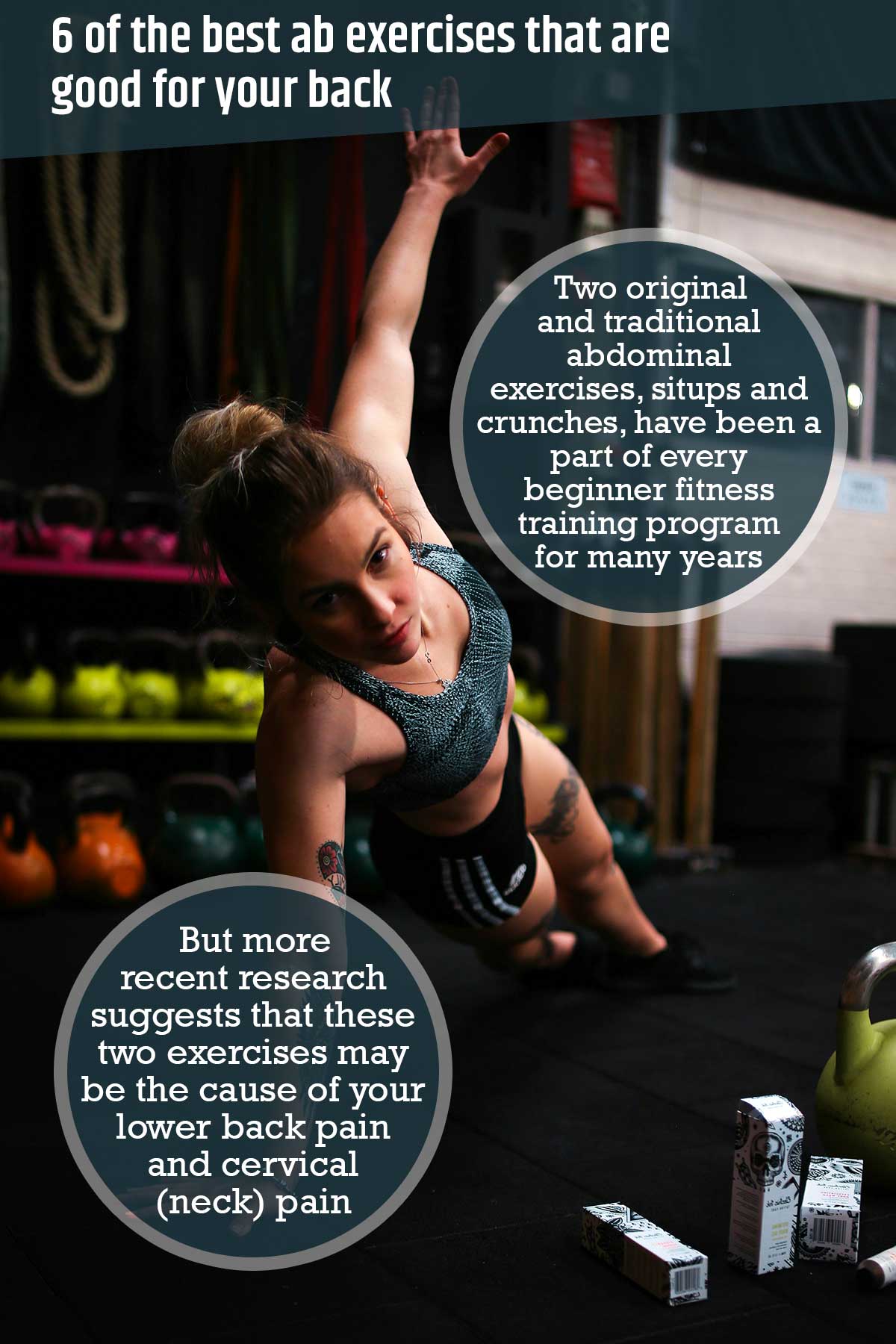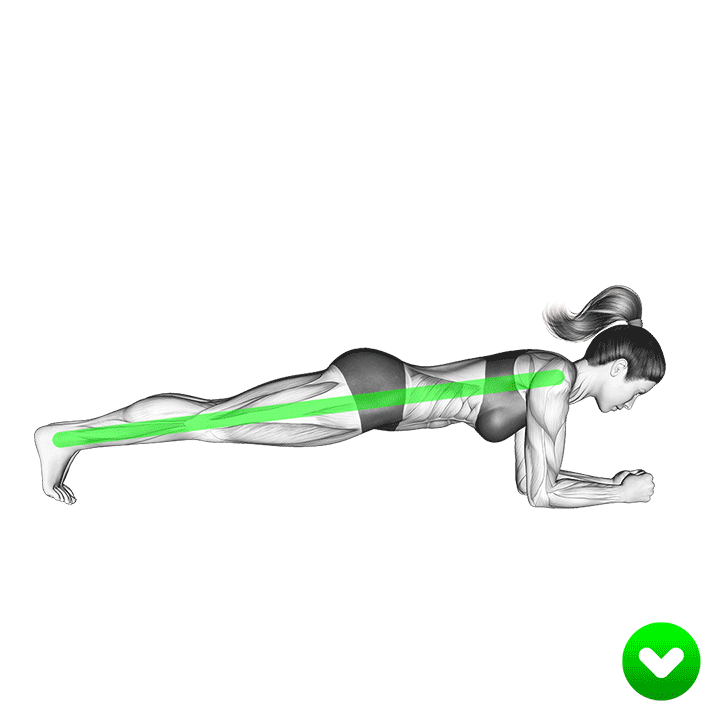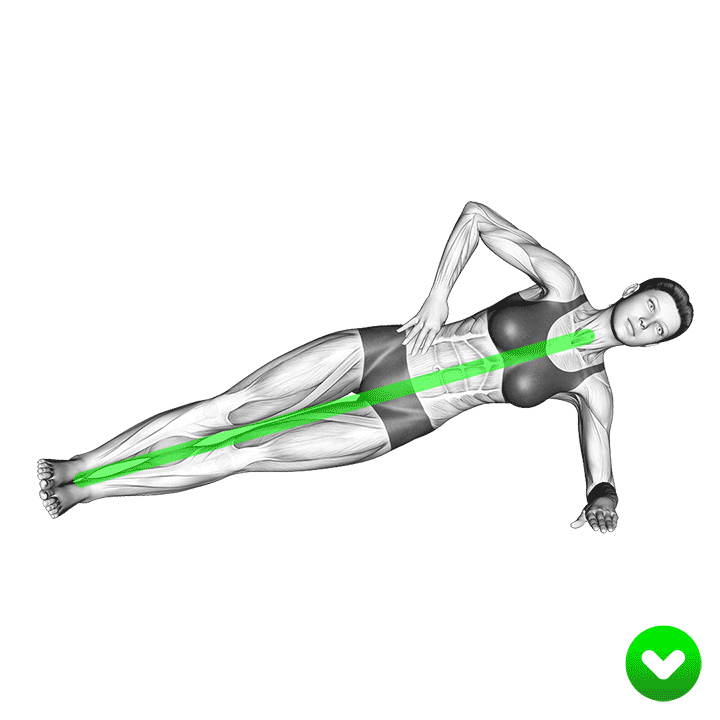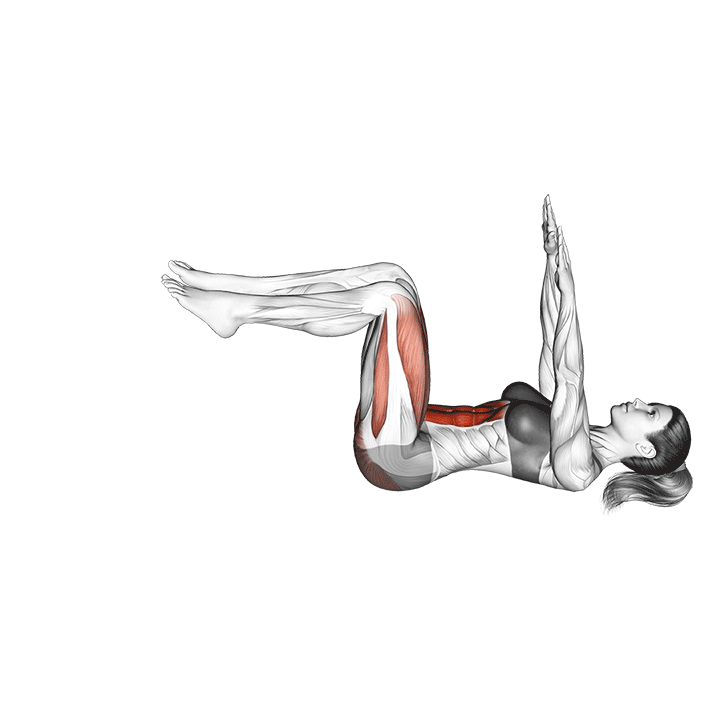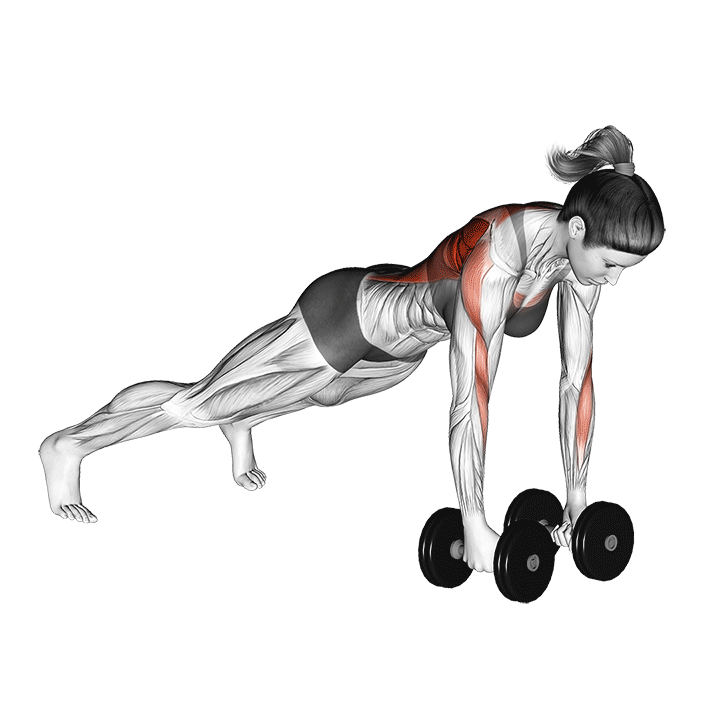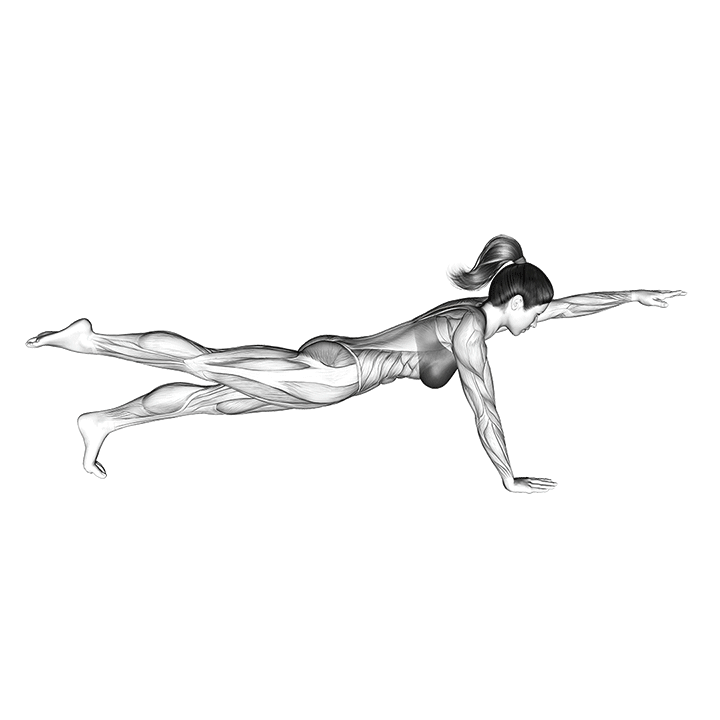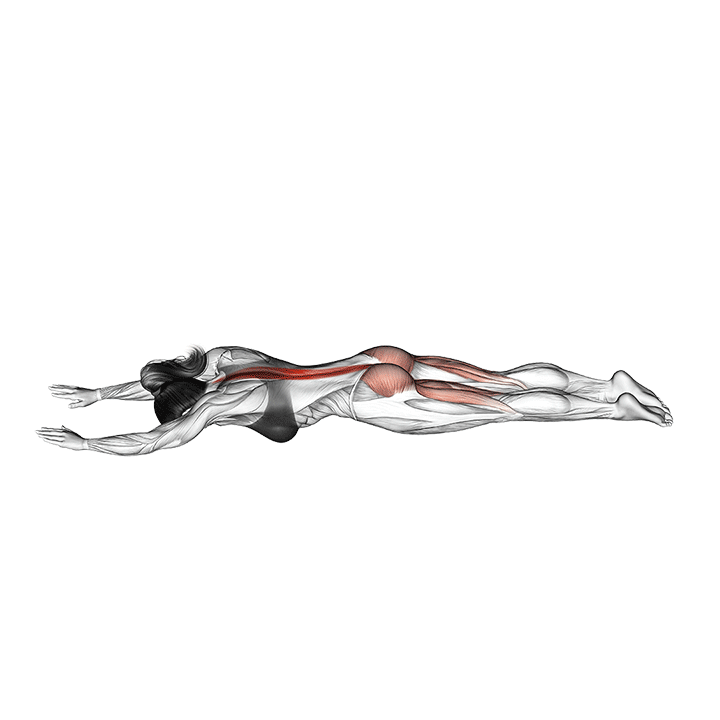Two original and traditional abdominal exercises, situps and crunches, have been a part of every beginner bodybuilding or fitness training program and every military basic training program and fitness test for many years. But more recent research suggests that these two exercises may be the cause of your lower back pain and cervical (neck) pain.
Sit Ups are hard on your back, the movement pushes your unnaturally curved spine into the floor. Traditional sit ups do little to flatten your abdominal muscles, and also over train your hip flexors, the long muscles that attach your thighs to the lumbar vertebrae along your spine in your lower back.
When your hip flexors are unbalanced, that is, too strong in comparison to your opposing lower back and hamstring muscles, or if they become shorter from training without stretching and become “tight”, they will pull on your lower spine, which can create lower back pain. Pain and discomfort to the degree of preventing you from standing up straight.
Crunches present similar problems with your lower back and spine with the added complication of pulling on your head and neck in an attempt to do “one more rep”. Many exercise enthusiasts still mistakenly believe that crunches are the answer to flat abdominals and make them a part of their training.
Unfortunately, many of these trainees also perform their crunches incorrectly and clasp their fingers behind their head or neck and literally pull themselves upright with their arms and not their abdominals. This is a dangerous move and can cause damage to your neck and cervical spine.
If you feel that you must include crunches in your abdominal training, park your butt on a thick mat or pad and never interlace your fingers, place them loosely behind or beside your head to avoid injury by pulling on your neck.
There are more effective and much safer abdominal exercises, ab exercises that won’t hurt your back and that work your abs and core, not your thighs and hip flexors. 6 of the best ab exercises safe for your back:
1. Planks
Planks recruit and train a balance of core muscles on the front, sides, and back of the body including your abdominals. Core exercises like planks, train your abs and back equally and prevent any potential muscle imbalances that lead to back pain.
How to do planks:
Assume a solid push up position on the mat or floor. Place your elbows and forearms on the floor with your elbows directly below your shoulders. Straighten your body until it forms a straight line from your neck to ankles and HOLD this position for as long as you possibly can.
Planks are not a flashy exercise, quite the opposite, you assume the position and hold for as long as possible as you countdown in your head or watch the clock – but planks are extremely effective for as simple as they are. The body saw plank as illustrated below is an alternative to the standard plank exercise.
2. Side planks
Also known as an Isometric Side Hold, side planks are similar to planks but from new angles and with focus on your obliques or “love handles”.
How to do side planks:
Lie on your side on the mat or floor with legs stacked, one atop the other. Raise your torso up off the floor and plant your elbow directly below your shoulder. Your opposite arm can rest on your side.
Now straighten your body and hold this position as long as you can. Be sure to switch sides and perform side planks on both sides equally. Try increasing your “hold” time each time you do this exercise.
3. Dead bug crunches
Dead bugs will strengthen weak abdominals and maintain safe back support throughout the exercise as your back will remain flat on the floor or exercise mat. This exercise will also help correct anterior pelvic tilt (your butt sticks out behind you and your belly in front of you) that may be the cause of any extension based back pain cause by excessive arch in your back.
This posture is common and natural in gymnasts, but not in those of us who are not.
How to do dead bug crunches:
Laying flat on your back, stretch the arms outwards above you extended toward the ceiling. Raise your thighs till they are perpendicular to the floor, the knees should now be pointing at the ceiling. Bend your knees at 90 degree angles until your lower legs are parallel with the floor.
Flatten your back into the floor and hold it there throughout the exercise. Now lower your left arm ABOVE your head until it almost touches the floor as you simultaneously lower your right leg until it is straight and just above the floor.
Pausing momentarily, slowly return to the position you started with and repeat with the right arm and left leg. Carry on alternating left, right, left until you can do no more. Don’t arch your back during this exercise, concentrate on keeping it flat and in contact with the floor.
4. Renegade rows
This exercise requires a matched pair of moderately heavy dumbbells or kettlebells and works your core, obliques and back stabilizing muscles and shoulders.
How to do renegade rows:
Start in a regular pushup position but with a dumbbell or kettlebell handle (horn) in each hand. Stabilize yourself, tighten your abs and core and lift one of the dumbbells or kettlebells off the floor and pull up and back until your elbow is up and pointing at the ceiling.
Pause just briefly and then slowly lower and return to the start position as you repeat with the opposite arm, alternating left, right, left. Do 3 sets of 6 to 8 reps on either side.
5. Bird dogs
Imagine your Dead Bugs flipped. This exercise is best done on a mat to protect your knees.
How to do bird dogs:
Get down on all fours with the knees directly below the hips and the hands directly below the shoulders. Focus on keeping your back flat and stable and your abs tight and engaged. Now lift your left hand and right leg off the floor.
Point forward with your extended arm and point back and behind you with the extended leg. Imagine you are a bird dog pointing at a duck as you hold for a few seconds and then return to the start position and switch and repeat. This exercise also requires you to stabilize and balance the body which engages all of the core muscles.
6. Superman
Primarily used as a lower back exercise, the Superman engages, stretches and tightens all of the muscles from your rear deltoids down to your calves including your core and abdominals, if you hold the position for any length of time, you will feel these muscles shake and quiver.
How to do supermans:
Lie flat and face down on the floor or exercise mat with your arms fully extended in front and legs straight behind you, imagine Superman flying. In one simultaneous motion, raise your arms, legs and chest off of the floor by contracting all of the muscles of your back and core.
Hold this position as long as you can. Once you are unable to continue, slowly lower your body back to the mat and relax. Rest briefly and repeat for as many repetitions as you can. During each training session try to hold your Superman for a slightly longer time each workout.
As a variation, or as a slightly easier version for the beginner, instead of lifting both arms and legs, lift one arm and the opposite leg, exactly as you did in the Bird Dog. Alternate sides equally to guarantee balance training and results.
When your core is strong and stable, your spine remains upright and aligned while your body freely swivels around it as it should. If you attempt to strengthen only one set of core muscles, your spine can easily be destabilized by pulling it out of alignment and that leads to back pain. Train your core from every angle and you will also develop your abdominal muscles – without the pain!
